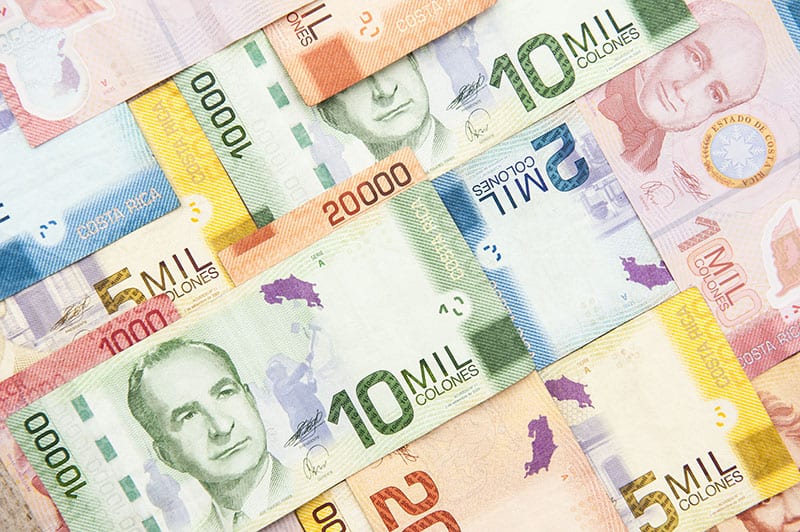In Costa Rica we have a sizeable class of people that live primarily on coins and the red (1000 colon), blue (2000 colon), and yellow (5000 colon) notes. They are all part of a cash only economy that is present on the streets of the cities, the rural pulperias, the agriculture ferias and between the palm trees on our beaches.
These are places where your plastic debit or credit card won’t do you a bit of good. These are microeconomies that fly under the radar as much as possible, and where old school cash is still king.
Start with some of the most visible– the people who sell numbers. Besides the ubiquitous lottery ticket salespeople on every other street corner, there are also countless independent vendors who ‘sell’ the 2-digit numbers that are part of the thrice weekly national lottery drawing (which is a 3-digit number, followed by a 2-digit number).
Some of these numbers runners make literal house calls in the barrio, with a route of regular customers, all laying 100 or 500 or a thousand colones or more on their favorite numbers, with the chance for a payoff that is typically 80 to 85 times the bet. There are also places where you can buy the numbers from lotteries in neighboring countries Nicaragua and Panama.
Street vendors are also cash only. Operating from small kiosks in urban areas, they sell candy, gum, cigarettes, newspapers and other low value goods. Our beaches wouldn’t be the same without the proliferation of cash only wandering salespeople, offering everything from pottery to counterfeit Cuban cigars to ‘copis’ (crushed ice with sweetened condensed milk and your choice of flavorings) to agua de pipa.
Likewise, the farmer’s markets that run throughout the country are mostly cash only, though on a recent visit to my local feria I saw a few of the bigger vendors armed with credit card machines.
Further down the cash only food chain are the street musicians playing with their instrument cases open for tips; small time weed dealers; people like the guy I see juggling flaming sticks at a major intersection where I live (and try to steer clear of, fearing a dropped stick resulting in a holocaust of exploding gas tanks); and of course the cuidacarros hanging in the streets of urban areas and on the beaches, soliciting payment to ‘’guard’’ your vehicle (or else!).
This economy serves me well– I am a hoarder of coins and small bills. I have a tin container where I toss my red and blue banknotes and 500, 100, 50, and 25 colon “gold” coins. I also toss in the 5 and 10 colon coins. (I call those coins ‘fichas’ as in tokens, because they feel like the tokens you might use to mark your card while playing bingo). It all spends. I like to grab a handful of the bills and coins any time I head out. Long live the cash economy!
Because sometimes it feels like an act of rebellion to be a part of it. The ruling class and their friends at the multinational banks would love nothing more than a cashless economy, where every transaction is just numbers on a screen, and all payments are covered by a plastic card with your name, an expiration date, and a block of numbers unique to your card, that makes sure that your every purchase is duly recorded and saved in your name forever.
The presence of actual cash circulating is cash that they don’t have their hands on, and the more times it is spent the less traceable it becomes. So, keep those bills and coins circulating.






